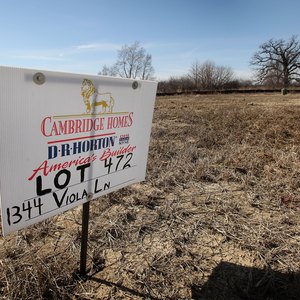
Vacant land is typically viewed as a speculative investment. It produces no income, has ongoing expenses and is only profitable if its market value increases in the future. Nevertheless, vacant land is not only an excellent hedge against inflation, but it also generates multiple tax benefits.
No Taxable Income
The fact that vacant land does not produce income makes it an unattractive investment to many. For those who are looking to park capital and reduce their taxable income, banking land is an excellent strategy.
Deduction of Expenses
Vacant land can be expensive to own. Expenses include property taxes, mowing and clearing fees as well as management and accounting costs. These costs, reported on your Form 1040 Schedule E, can be used to offset passive income from other investments and reduce your total tax bill.
Tax-Deferred Growth
Although values for land can fluctuate, investors who purchase it typically expect that it will increase in value over time. As the land appreciates, that equity sits in the land and is not turned into cash. Because of this, its growth in value occurs on a tax-deferred basis, as you only have to pay taxes on it when you actually realize the increased value by selling it.
Tax-Free Sales
Using what is commonly called a 1031 exchange, named after Section 1031 of the Internal Revenue Code, you can sell your vacant land, buy more investment real estate and not have to pay any capital gains taxes. In exchange for following a few rules regarding timing, doing some extra paperwork and paying a third party a reasonable fee, 1031 exchanges allow you to defer your gain until you cash out of real estate completely. Given that your basis steps up to fair market value when you transfer your real estate to your heirs, it is possible for you to never pay capital gains taxes on investment real estate such as vacant land.
For Real Estate Professionals
Real estate professionals, defined as people who work at least 750 hours per year in real estate activities and spend at least 50 percent of their working hours in the field, gain additional tax benefits. They can take their losses from the vacant land and apply it not only against other passive income but also against active income earned in the conduct of their real estate business.
References
Writer Bio
Solomon Poretsky has been writing since 1996 and has been published in a number of trade publications including the "Minnesota Real Estate Journal" and "Minnesota Multi-Housing Association Advocate." He holds a Bachelor of Arts, cum laude, from Columbia University and has extensive experience in the fields of financial services, real estate and technology.

